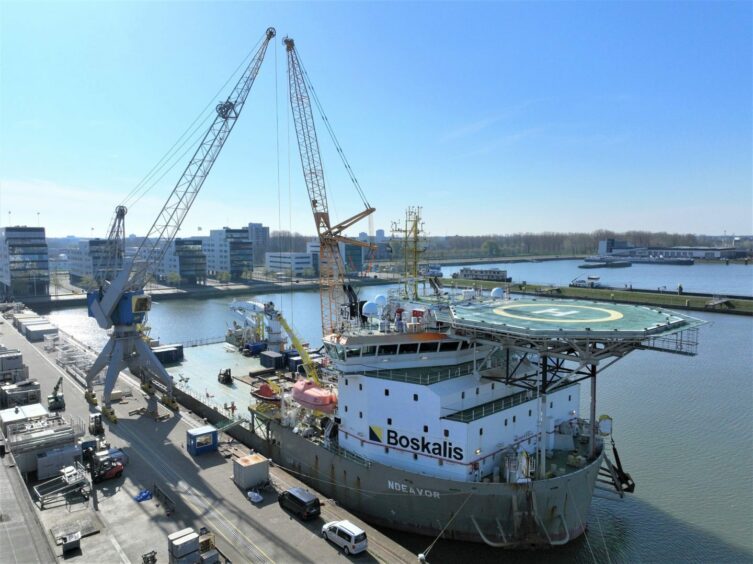
Boskalis has committed to removing oil from the FSO Safer, off war-torn Yemen, under a deal with the United Nations Development Programme (UNDP).
The company, working through its SMIT Salvage unit, will remove around 1 million barrels of oil from the FSO. It will transfer the oil to a modern tanker.
“We are extremely delighted that these efforts and the perseverance of the UN to raise the necessary funds has brought us to this agreement,” said Boskalis CEO Peter Berdowski. “Following a long planning period, our salvage experts are keen to get to work and to remove the oil from the Safer.”
Boskalis has been involved in plans for the FSO Safer since 2021. Berdowski expressed his gratitude to a number of UN states, including the Netherlands, which had “played a prominent role”.
“The Boskalis vessel Ndeavor will depart tomorrow from the port of Rotterdam stocked with all the necessary salvage equipment and I wish the crew all the success in this important mission.”
The multi-purpose support vessel Ndeavour should arrive in Djibouti within about three weeks. Once there, the crew will make final preparations before moving to Yemen. The FSO is 50 km northeast of the port of Hodeida.
The first phase will involve an inspection of the vessel and its cargo, with a particular focus on safety. The FSO has not had any maintenance since 2015.
Once SMIT declares the vessel safe, a VLCC will come alongside the FSO and SMIT will carry out the ship-to-ship transfer.
Once it has transferred the oil, SMIT will then clean the FSO’s tanks. It will also transfer the residual water to the VLCC.
The work should take about two months, it said. Once the FSO Safer is clean and empty, it will be towed to a green shipping yard.
Preventing disaster
Dutch Minister for Foreign Trade and Development Cooperation Liesje Schreinemacher said the FSO Safer raised the risk of an “enormous oil disaster”. A spill could create an oil slick throughout the Red Sea, endangering food supplies to Yemenis. Cleaning up the spill might cost $20 billion.
“We now have a chance to prevent that disaster,” Schreinemacher said.
“The Netherlands has worked hard to mobilize funds for the operation and now a major new step has been taken. It’s good that Dutch firm Boskalis is taking on a key role in the response. The Netherlands will continue helping the UN to bring this to a good end.”
The project still needs more funds, though. UNDP administrator Achim Steiner called for governments and companies to “step forward and help us raise the remaining $29 million required to complete this complex rescue operation”.
As of April 17, the UN had raised $99.6mn for the FSO Safer work. The UK will host a pledging conference on May 4 in an attempt to secure additional funds for the work.
Another $19mn is required for the second phase of the work.
Stiner, on April 15, said the VLCC was preparing to head to Yemen. The Nautica, which the UN bought from Euronav, is preparing to leave Singapore. It should arrive at the site by mid-May.
